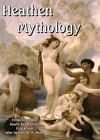
Holocaust Industry : Reflections on the Exploitation of Jewish Suffering

Description
Reflections on the
Exploitation of Jewish Suffering
by Norman G. Finkelstein
 In an iconoclastic and controversial new study, Norman G. Finkelstein interrogates the conventional accounts of the place the Holocaust has come to occupy in American culture. It was not until the Arab-Israeli War of 1967, when Israel's evident strength brought it into line with US foreign policy, that memory of the Holocaust began to acquire the exceptional prominence it enjoys today. Leaders of America's Jewish community were delighted that Israel was now deemed a major strategic asset and, Finkelstein contends, exploited the Holocaust to enhance this new-found status. Their subsequent interpretations of the tragedy are often at variance with actual historical events and are employed to deflect any criticism of Israel and its' supporters. Recalling Holocaust fraudsters such as Jerzy Kosinski and Binyamin Wilkomirski, as well as the demagogic constructions of writers like Daniel Goldhagen, Finkelstein contends that the main danger posed to the memory of Nazism's victims comes not from the rubbish of Holocaust deniers but from prominent, self-proclaimed guardians of Holocaust memory. Scrupulously researched and closely argued, The Holocaust Industry is all the more disturbing and powerful because the issues it deals with are so rarely discussed.
In an iconoclastic and controversial new study, Norman G. Finkelstein interrogates the conventional accounts of the place the Holocaust has come to occupy in American culture. It was not until the Arab-Israeli War of 1967, when Israel's evident strength brought it into line with US foreign policy, that memory of the Holocaust began to acquire the exceptional prominence it enjoys today. Leaders of America's Jewish community were delighted that Israel was now deemed a major strategic asset and, Finkelstein contends, exploited the Holocaust to enhance this new-found status. Their subsequent interpretations of the tragedy are often at variance with actual historical events and are employed to deflect any criticism of Israel and its' supporters. Recalling Holocaust fraudsters such as Jerzy Kosinski and Binyamin Wilkomirski, as well as the demagogic constructions of writers like Daniel Goldhagen, Finkelstein contends that the main danger posed to the memory of Nazism's victims comes not from the rubbish of Holocaust deniers but from prominent, self-proclaimed guardians of Holocaust memory. Scrupulously researched and closely argued, The Holocaust Industry is all the more disturbing and powerful because the issues it deals with are so rarely discussed.
Contents
Acknowledgments
Foreword to the Paperback Edition
Introduction
Capitalizing The Holocaust
Hoaxers, Hucksters, and History
The Double Shakedown
Conclusion 141
Postscript to the Paperback Edition
Index
Excerpt:
Page 41-42
"Holocaust awareness," the respected Israeli writer Boas Evron observes, is actually "an official, propagandistic indoctrinations, a churning out of slogans and a false view of the world, the real aim of which is not at all and understanding of the past, but a manipulation of present." In and of itself, the Nazi holocaust does not serve any particular political agenda. It can just as easily motivate the dissent from as support for Israeli policy. Refracted through an ideological prism, however, "the memory of the Nazi extermination" came to serve - in Evron's words - "as a powerful tool in the hands of the Israeli leadership and Jews abroad." The Nazi holocaust became The Holocaust.
Two central dogmas underpin the Holocaust framework: (1) The Holocaust marks a categorically unique historical event; (2) The Holocaust marks the climax of an irrational, eternal Gentile hatred of Jews. Neither of these dogmas figured at all in public discourse before the June 1967 war; and, although they became the centerpieces of Holocaust literature, neither figures at all in genuine scholarship on the Nazi holocaust. On the other hand, both dogmas draw on important strands in Judaism and Zionism.
In the aftermath of World War II, the Nazi holocaust was not cast as uniquely Jewish - let alone a historically unique - event. Organized American Jewry in particular was at pains to place it in a universalist context. After the June war, however, the Nazi Final Solution was radically reframed. "The first and most important claim that emerged from the 1967 war and became emblematic of American Judaism," Jacob Neusner recalls, was that "the Holocaust...was unique, without parallel in human history." In an illuminating essay, historian David Stannard ridicules the "small industry of Holocaust hagiographers arguing for the uniqueness of the Jewish experience with all the energy and ingenuity of theological zealots." The uniqueness dogma, after all, makes no sense.
168p., 6 X 8













